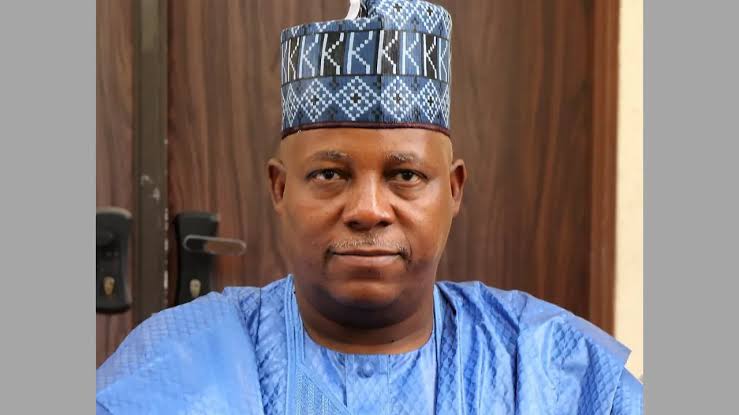
Shettima Advocates Digital Technology for Growth of Africa’s Capital Markets
The Vice President of Nigeria, Senator Kashim Shettima, has urged African capital markets to embrace digital transformation and deepen regional integration to establish a more efficient, accessible, and resilient financial system.
Shettima made the call on Thursday at the 2025 Conference of the Africa and Middle East Depositories Association (AMEDA), held in Lagos.
AMEDA is the umbrella body for Central Securities Depositories and Clearing Houses—collectively referred to as Financial Market Infrastructures—operating across Africa and the Middle East. It was established in 2005.
Shettima, who was represented by the Special Adviser to the President on Economic Matters, Tope Fasua, said in a recorded message: “We are witnessing tectonic shifts in how we engage with one another and the wider world.
“These shifts, driven by innovation, favourable demographics, digital disruption, and economic realignments, compel us to rethink the very architecture of our financial ecosystems and economic management models.
“At the heart of this transformation lies the indispensable role of financial market infrastructures, depositories, clearing houses, payment systems, and digital platforms that sustain trust, enable transparency, and provide the liquidity our markets require.
“In His Excellency, President Bola Tinubu, you have not only found an ally in market reform but also a steward of economic stability.”
He stated that the Tinubu administration is committed to strengthening Nigeria’s financial market infrastructures through a deliberate blend of regulation, reform, capital market development strategies, and robust public-private collaboration.
This, he said, includes broadening participation in capital markets, increasing access to finance for MSMEs and start-ups, and financing infrastructure through green bonds, social bonds, and Sukuk.
“Our agenda is anchored in inclusive finance principles and designed to deliver tangible public value,” he said.
“We are also harnessing innovation across sectors—from fintechs and mobile platforms to payment service providers—to make our financial system more efficient, accessible, and inclusive.
“But for innovation to be meaningful, it must be responsible, secure, and equitable. No citizen must be left behind.”
Shettima added that to shape the future of finance, Nigeria must move beyond domestic thinking and embrace a shared regional vision.
“This is particularly urgent and promising in Africa and the Middle East, where the convergence of demographic strength, digital ambition, and bold policy reform is laying the foundation for transformative growth.
“The African Continental Free Trade Area Agreement marks a defining moment, with the potential to unite 54 countries into a single market of over 1.4 billion people.”
According to him, the momentum to harmonise capital markets and expand cross-border investment is gaining traction in Nigeria.
He noted that the country has introduced a regulatory framework for digital assets and enhanced legal instruments to support capital market development.
“These moves are not isolated. In Nigeria, we are on an ambitious journey to grow our economy to $1 trillion within the next decade,” he said.
“Achieving this vision requires not only sound policies but also enduring partnerships and the insights of brilliant minds like yours gathered here today.
“Let this gathering inspire us to build financial systems that are efficient, inclusive, and future-proof.”
Also speaking at the event, the Chairman of Access Holdings, Aigboje Aig-Imoukhuede, called for collaborative efforts to drive the financial market infrastructures needed in both regions.
Aig-Imoukhuede noted that, based on past investment trends, the Middle East has demonstrated a strong willingness to invest in Africa.
In his welcome address, the Chairman of AMEDA, Abdulla Abdin, said the theme of the conference—Shaping the Future: Financial Market Infrastructures as Catalysts for Transforming Economies—reflects the association’s awareness of the rapid transformation taking place in the global economy.
He emphasised the role played by financial market infrastructures in enabling economies to adopt innovation and achieve inclusive growth.
“AMEDA holds the view that financial infrastructure is not solely a technical tool; it constitutes an essential mechanism for development,” he said.
“It is a sound basis for incentivising investment, improving transparency, optimising market efficiency, and realising economic integration within the region.”
